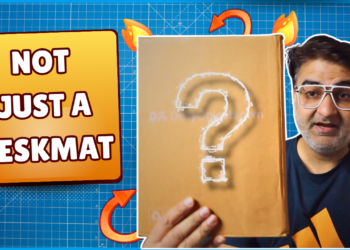Machine learning or ML is fast becoming one of the most talked-about topics in the realm of technology and business, and for good reason. While the concept of machine learning might be a difficult one for businesses to initially grasp, readymade solutions and mass awareness of the incredible potential of machine learning have already proved to be major drivers for businesses to start thinking about adopting this technology. In fact, according to a Gartner survey, about 37% of surveyed organizations have already started implementing machine learning in one form or another. However, this survey only addresses large corporations with significant IT budgets.
So, can machine learning technology be an asset for small businesses? The answer is yes. Thanks to the myriad applications machine learning can be used for, implementing machine learning can be a veritable asset for small businesses in certain use cases. In fact, small businesses that want to stay ahead of the curve and survive in competitive markets would certainly do well to invest in machine learning technology and reap the rich rewards therein.
Let us take a look at 10 machine learning applications for small businesses that can really bolster growth, performance, and revenue. First, let us look at some broad-spectrum applications.
Recruitment
Small businesses often cannot invest much in large, multi-layered HR departments. For a small business with just a few people or a small team taking care of HR, the amount of work required to recruit and retain the right people might be a daunting task. This is where machine learning technology can come in and save the day.
One thing that ML technology can do really well is to reduce human labor by taking care of repetitive tasks. Any function that can take up a lot of man-hours can be accomplished easier and faster by employing machine learning.
A great idea for small businesses is to leverage an application tracking system that leverages machine learning to screen applications. This way, small businesses can have an easier time finding the right resumes for their open positions, matching criteria, and taking care of scheduling and interviews. These tools can take the toil out of recruitment and help reduce hiring bias too.
Finding employees is one challenge and keeping them in the company is quite another. For this, there are several ML-powered retention solutions that can use key performance and satisfaction metrics to help keep employees engaged and growing. This can reduce attrition and turnover and lead to a much more satisfied workforce.
Customer Service
For many small businesses in the past, growth in the number of customers would necessitate a similar growth in their ranks of customer service personnel. This can be an expensive undertaking that leaves a dent in the company budget while also creating a new set of challenges. With machine learning-powered customer service solutions, a growing customer base can be easily managed by a small team.
The first line of service can come from an ML and AI-powered chatbot. This is something that many small businesses are quickly picking up as a major timesaver. A large number of customer queries can be sorted out through instant answers provided by a chatbot. This leaves the customer service team the chance to concentrate on more complex customer interactions while also improving the customer experience manifold.
Customer service can be further enhanced by using a ticketing system that uses machine learning to direct queries to the appropriate departments instantly. This can lead to faster resolution of customer issues and further improve customer experience.
Marketing
Small businesses typically have small marketing budgets that need to provide high ROI. Since modern customers typically look for personalized, streamlined experiences, small businesses can get a lot of utility out of using marketing platforms and tools that use machine learning to provide such an experience.
For example, an email marketing platform that uses machine learning can really help small businesses stay on top of their email marketing by providing advanced features and functionality. Businesses can automate marketing emails to a great degree, A/B test headlines, and approaches, create different personalizations based on customer profiles and even test the optimum time of day to send out emails.
There are also several other kinds of marketing tools available for small businesses that leverage machine learning. These tools can be used to carry out predictive lead scoring, on-site personalization of content, and detailed analysis and dashboarding of online advertising strategies and their results. Overall, this helps improve ROI and ensure that small businesses can get the maximum reward from their limited marketing budgets.
Sales
For small businesses, efficient sales can often be a challenge, especially in competitive markets where such businesses have to compete with much larger entities. For a smaller sales team to remain competitive, machine learning can come to the rescue.
For example, a great way to drive sales is to proactively start conversations with website visitors regarding their needs. Sales-focused chatbots can initiate these conversations and use ML to read patterns and preferences, finally sending customers where they need to be. These tools can also be used by sales teams to eliminate repetitive tasks that can take man-hours. This way, the focus of the sales team remains on the complexities of sales.
Similarly, machine learning-powered sales tools can help sales teams with CRM by automatically following up on leads, analyzing social media data, analyzing emotional states of customers calling in, and giving sales agents insight.
Business Strategy

For a small business, the operation needs to be streamlined and extremely efficient. Making the right decisions and formulating the right strategies are crucial steps for small businesses with very high stakes involved. This is an area where machine learning can certainly make an appearance. ML algorithms can help spot important patterns and trends within the inner workings of a business.
For example, you can use machine learning tools to collect data on vital business processes and check for the occurrence of human error. Scheduling assistants that leverage ML and AI can help set up meetings and allocate resources. Project management and accounting tasks can also be simplified.
While these broad-spectrum use cases can offer insight into the manner in which machine learning applications can benefit small businesses, here are some more specific applications that can serve as examples.
Curated Image Delivery
If your small business routinely works with images and serving images intelligently is part of your daily process, machine learning can help. For example, if you run a small aggregator or review site for hotels, restaurants, or other local businesses, you can use machine learning to classify and categorize pictures, thereby making it easier for your human staff to work with large picture libraries with ease.
Content Curation
If your small business is a content platform or network and you are looking to deliver curated content experiences for your customers, machine learning is an asset. You can use ML-powered tools for a variety of your requirements including content curation, content discovery, monetization and advertising, moderation, and reducing subscriber churn.
E-commerce Conversion
While more and more people are turning to purchase online, small businesses looking to sell online still have to cater to a wide user base with varying levels of comfort regarding the process. With ML algorithms, you can streamline the experience for website visitors and exponentially increase conversion rates with the right plan. A machine learning driver tool can help gauge commercial intent by studying behavior and delivering an online experience that is comparable to shopping at a traditional brick-and-mortar store.
Healthcare

With many small businesses looking to enter the realm of healthcare, there is steady potential for the use of machine learning. Using self-learning algorithms that create behavioral models and deploy outcomes based on those models, you can leverage machine learning to interact with healthcare service seekers and make initial health recommendations based on data. For the first line of contact with a small healthcare business, this can save costs and create reliable results.
Voice Search
Most business websites have a search function. In fact, this is something that customers expect even from small businesses. You can do one better by implementing a voice search feature that leverages ML and AI. Using pattern recognition and natural language processing can make it a lot easier for customers to interact with your website or mobile app. Apart from reliable voice search, such tools can also be used to authenticate customers and offer real-time translations to and from various languages.
Key Takeaways
With these ideas, it becomes clear that machine learning applications can really benefit small businesses in this day and age. With the rapid pace of technological advancements and many creative companies coming forward with solutions that leverage machine learning for small businesses, these top machine learning applications for small businesses in 2021 can serve as a reminder that machine learning can be a valuable resource for businesses of all sizes and there is no entry barrier that restricts its judicious use to larger corporations and global conglomerates.









